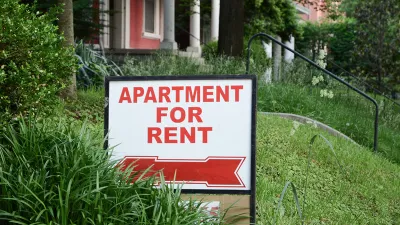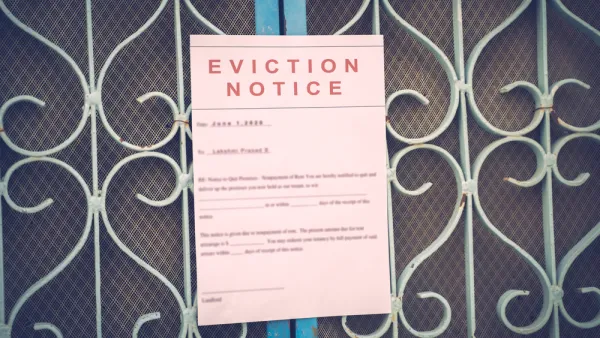The landlord tech industry, while alive and well prior to COVID-19, has ramped up in the past year to develop new ways to accumulate wealth at the expense of tenants.

Most renters know too well that COVID-19 has exacerbated racialized housing injustice, despite the powerful organizing efforts of an ever-growing housing justice movement. While numerous eviction moratoriums have passed in the U.S., these protections are weak and place the burden of proof on tenants. Most have only deferred rent debt, evictions, and houselessness. Currently, 17 million Americans are not up to date on rent payments, and 33 percent face eviction or foreclosure over the next two months. Even in cities with strong protections, landlords have been harassing and evicting tenants throughout the pandemic, instilling fear in an already confusing and shifting legislative landscape. As was the case prior to the pandemic, Black tenants have been hardest hit by evictions and eviction threats.
As tenants struggle to pay their rent, and housing prices drop and vacancy rates rise in high-cost cities such as San Francisco and New York City, landlords have repeatedly complained about losing revenue. And yet, the real estate industry appears to have plenty of money at its disposal as it spent almost $100 million in California to defeat a 2020 ballot initiative that would have limited unfair rent increases and preserved affordable housing. Furthermore, large landlords have also engaged in new forms of real estate speculation to capitalize upon the COVID-19 moment, such as investing in rent debt and exurban properties.
At the same time, an array of new real estate-oriented tech startups has emerged with tools to help landlords evict unruly or non-paying tenants. These technologies make up part of what the real estate industry describes as “property technology,” or “proptech,” and what we, as researchers with the Anti-Eviction Mapping Project and the AI Now Institute, in collaboration with people.power.media and the Ocean Hill-Brownsville Tenants Association, describe as “landlord technology.” The landlord tech industry, while alive and well prior to COVID-19, has ramped up in the past year to develop new ways to accumulate wealth at the expense of tenants.
Landlord Tech
What exactly is landlord tech, or proptech? This is a difficult question to answer thoroughly, in part because the industry is very secretive, but we can identify many examples. According to the real estate industry, it emerges from a combination of traditional real estate, big tech, venture capital, smart home systems, and financial technology. Manifestations of landlord tech can include tenant screening services, app-based short-term rental platforms, biometric facial recognition, and tools for real estate speculation.
Many date proptech’s origins to the 2008 financial crisis, when the real estate industry sought to implement emerging technologies to “disrupt” industry sluggishness, and when Airbnb and the “sharing” economy emerged. That period resulted in a large-scale shift to corporate ownership of housing, as investment companies and their shell company limited liability companies (LLCs) and limited partnerships (LPs) bought everything in sight. Proptech was used to facilitate this shift, by automating property management and asset acquisition.
We studied hundreds of companies, platforms, and their effects, and found that there are two distinct yet often overlapping categories of landlord tech being deployed:
....
FULL STORY: Keeping an Eye on Landlord Tech

Analysis: Cybertruck Fatality Rate Far Exceeds That of Ford Pinto
The Tesla Cybertruck was recalled seven times last year.

National Parks Layoffs Will Cause Communities to Lose Billions
Thousands of essential park workers were laid off this week, just before the busy spring break season.

Retro-silient?: America’s First “Eco-burb,” The Woodlands Turns 50
A master-planned community north of Houston offers lessons on green infrastructure and resilient design, but falls short of its founder’s lofty affordability and walkability goals.

Test News Post 1
This is a summary

Analysis: Cybertruck Fatality Rate Far Exceeds That of Ford Pinto
The Tesla Cybertruck was recalled seven times last year.

Test News Headline 46
Test for the image on the front page.
Urban Design for Planners 1: Software Tools
This six-course series explores essential urban design concepts using open source software and equips planners with the tools they need to participate fully in the urban design process.
Planning for Universal Design
Learn the tools for implementing Universal Design in planning regulations.
EMC Planning Group, Inc.
Planetizen
Planetizen
Mpact (formerly Rail~Volution)
Great Falls Development Authority, Inc.
HUDs Office of Policy Development and Research
NYU Wagner Graduate School of Public Service




























